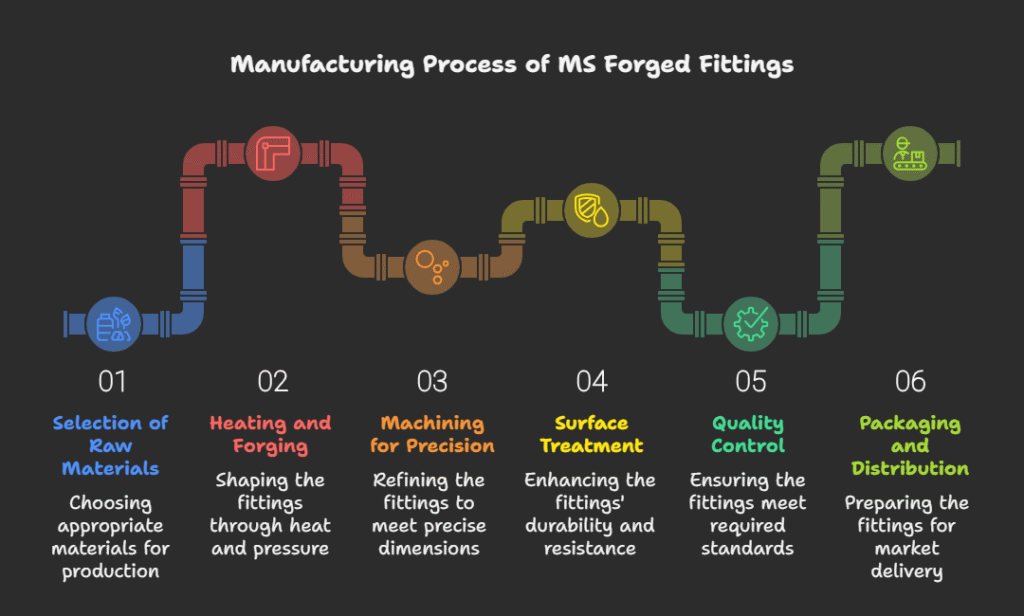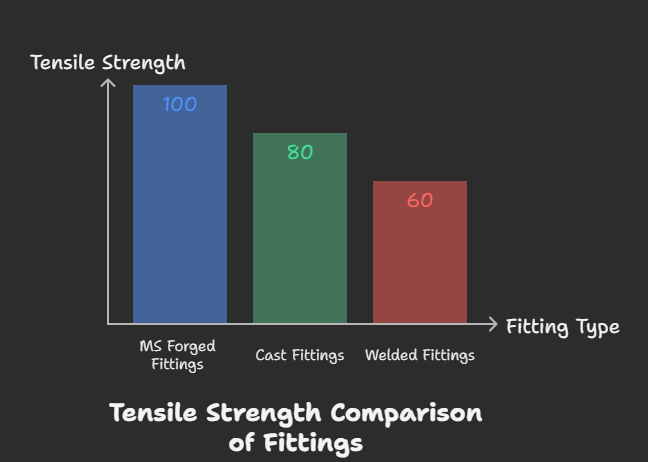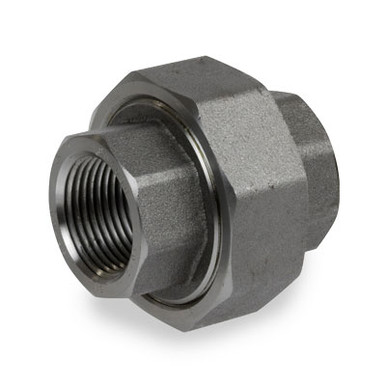Introduction
MS forged fittings stand as the backbone of many industrial piping systems. In fluid handling, gas, chemical, and power sectors, mild steel (MS) forged fittings deliver reliability. At Fortis Forge, we combine advanced forging technology with quality assurance to deliver the best product. In this post, we explore how MS forged fittings are made, their advantages, use cases, and buying tips
What Are MS Forged Fittings?
MS forged fittings are pipe connectors and components made of mild steel through forging. They include elbows, tees, couplings, caps, reducers, and more. These parts form strong, leak‑resistant joints in piping systems.
Forged fittings differ from cast or welded fittings because forging refines the internal metal structure. The grain flows align with the shape, improving mechanical properties. As a result, MS forged fittings offer superior strength, toughness, and reliability.
How Are MS Forged Fittings Manufactured?
Raw Material Selection – Choose mild steel billets or bars of correct chemical spec.
Heating the Billet – Heat the billet to forging temperature (typically red‑hot).
Forging / Pressing – Apply pressure using dies to shape the fitting.
Trimming & Flash Removal – Cut away the excess flash and trim edges.
Heat Treatment – Normalize, stress relieve, or quench & temper (as needed).
Machining & Finishing – Machine threaded ends or socket surfaces.
Inspection & Testing – Check dimensions, mechanical strength, and defects.

Advantages of MS Forged Fittings
MS forged fittings deliver many benefits:
High strength and toughness. They resist shock, fatigue, and heavy pressure.
Better grain structure. The forging process aligns grain flow, reducing weak spots.
Leak resistance. Fittings hold tight under pressure and thermal cycles.
Durability. They last longer in harsh conditions.
Safety. They reduce the risk of catastrophic failure.
Versatility. Available in many sizes, classes, and end types (threaded, socket weld).
In contrast, cast fittings may have porosity or internal defects that lower strength.

Applications & Use Cases
MS forged fittings are widely used in:
Oil & gas pipelines
Chemical plants
Power generation
Water treatment
Shipbuilding
Petrochemical refineries
They join pipes, change direction, branch flows, cap ends, and reduce or enlarge lines.
Quality Checks & Standards
To ensure reliability, Fortis Forge adheres to strict standards and testing:
Dimensional checks. Measure wall thickness, thread pitch, outer diameters.
Mechanical tests. Tensile, yield, elongation tests.
Hardness testing. To ensure material hardness meets spec.
Non‑destructive tests (NDT). Magnetic particle, dye penetrant, ultrasonic testing.
Chemical analysis. Verify steel grade composition.
Pressure / Hydrostatic tests. Confirm leak tightness under pressure.
Also, we follow relevant industry standards (e.g., ASTM, ASME B16.11, MSS SP‑83 for forged fittings).

How Fortis Forge Ensures Excellence
At Fortis Forge, quality and precision guide our process:
We select billet steel from trusted suppliers.
Our forging presses operate under strict temperature control.
Skilled operators and CNC machining ensure dimensional accuracy.
We integrate inspection at each stage, not just at the end.
We document full traceability (batch, heat number, test reports).
We continuously refine our processes via feedback and innovation.
Thus, our customers get fittings they can trust under critical conditions.
Challenges & Solutions
Even with the best practices, challenges may arise:
Material defects. We mitigate by stringent supplier audits.
Distortion during heat treatment. We use controlled cycles and fixture jigs.
Machining burrs and tolerances. We apply fine finishing and edge rounding.
Cost pressures. We optimize cost via process efficiency without compromising quality.
By anticipating issues, Fortis Forge maintains high yields and consistency.
Tips for Buyers / End Users
When you choose MS forged fittings, keep these tips in mind:
Always ask for test certificate / material certificate (3.1 / 3.2).
Verify standard compliance (ASTM, ASME, MSS).
Inspect for surface defects, burrs, or cracks.
Choose reputed vendors with RG‑traceability.
Match class and pressure rating to your application.
Check thread quality and dimensional accuracy.
Plan for maintenance access and ease of installation
Conclusion
MS forged fittings combine strength, reliability, and safety in demanding applications. Fortis Forge commits to high standards, process control, and customer trust. By following the tips above, you can select fittings that last and perform under stress. Contact Fortis Forge to learn how we can supply MS forged fittings tailored to your application
